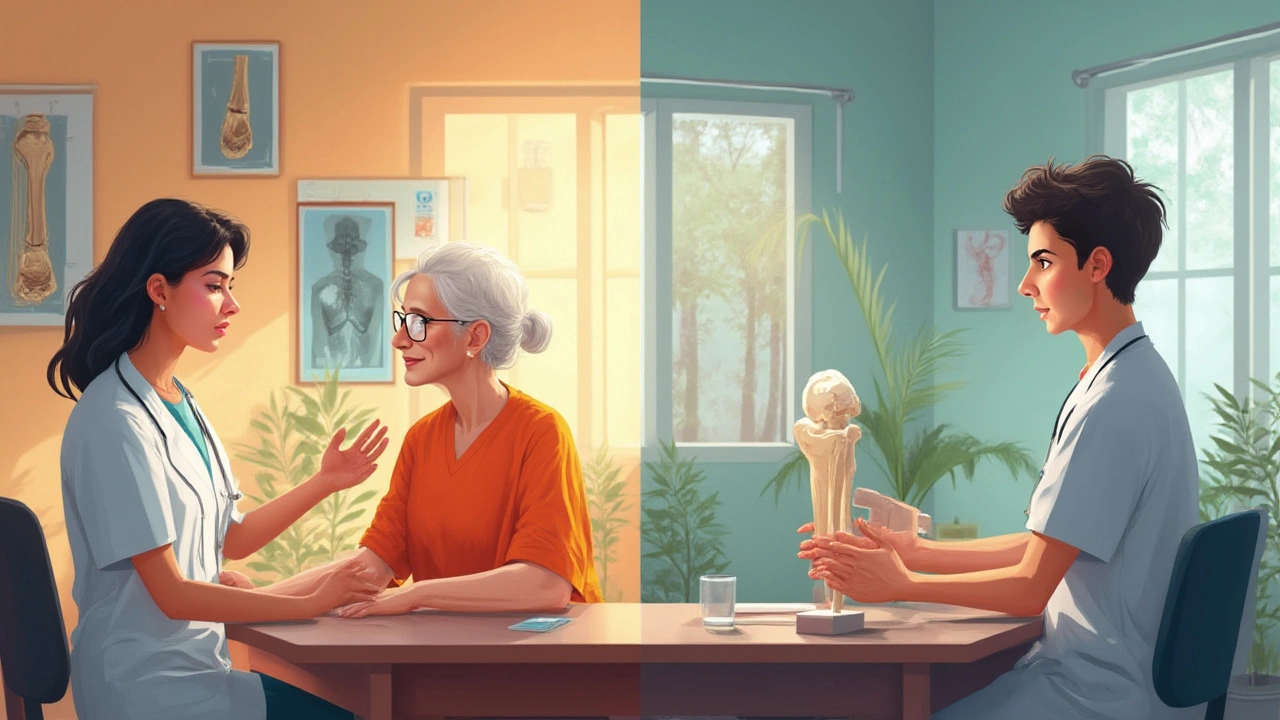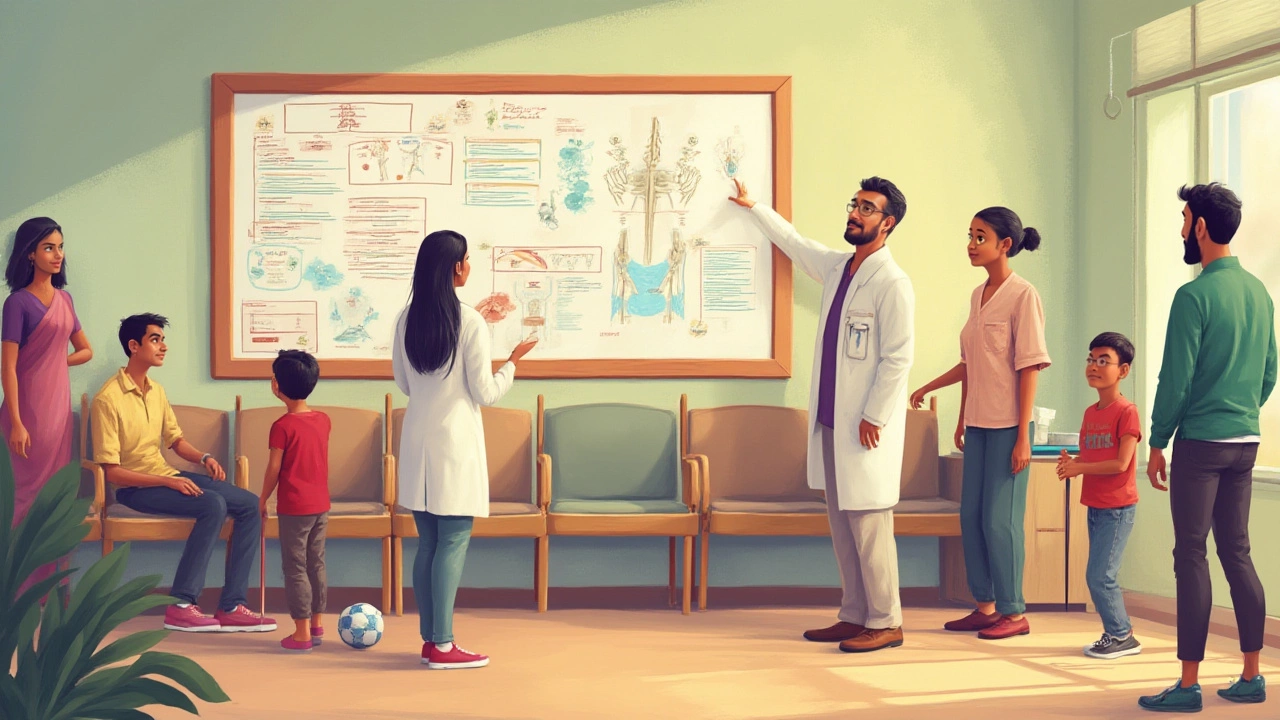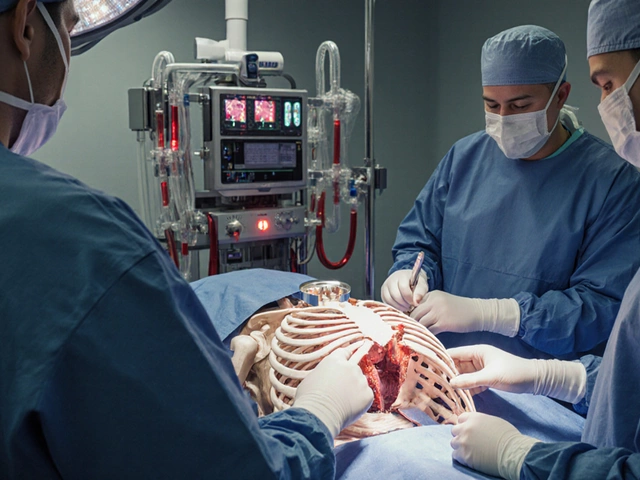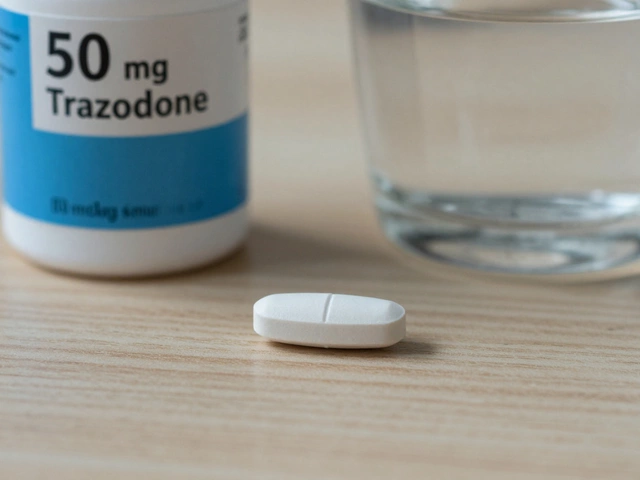You’d be surprised how many people walk around with a nagging pain in the knee or a wrist that grinds every time they pick up a bag. Sometimes it’s a sharp twinge, sometimes a dull ache. But here’s the kicker: most folks wouldn’t know which specialist to call even when it really starts to bother them. Go on, ask your mates at the pub tonight—half of them can’t name the exact kind of doctor who takes care of bones. It’s way more than just ‘the bone doctor’ or ‘the bone guy’ like everyone says. Getting clear on which specialist to see can save you precious time, future pain, and even money.
Who’s Who Among Bone Doctors?
Let’s start by cleaning up the confusion. When it comes to bones, the word ‘specialist’ gets thrown around a lot. With so many fancy titles, no wonder people get lost. The main player here is the orthopedic doctor—also called an orthopedic surgeon. These are the doctors trained to fix everything in your musculoskeletal system, not just bones but also joints, ligaments, tendons, and muscles. If you’ve broken an arm skateboarding or slipped a disc hoisting boxes, the orthopedic doctor is your frontline hero.
But it’s not just orthopedics in the game. There’s also a branch called rheumatology. Rheumatologists deal with pain and stiffness that’s not just from injuries, but from inflammation or immune-system problems. Think rheumatoid arthritis or lupus. Then there are endocrinologists, who step in when your bones are weak due to hormone problems—maybe osteoporosis or brittle bone disease. Even some sports medicine doctors get a look in if the issue is repetitive strain from working out or running.
So, do you go for an orthopedic surgeon, a rheumatologist, or someone else? Here’s where most people get it wrong. You should start with your GP (general practitioner). They can usually tell what’s up after a physical exam and a quick chat about symptoms. If you need more help, your GP will refer you to the right expert, cutting out weeks of trial and error.
Fun fact—not all countries use ‘orthopaedic’ as the spelling. In the UK, it’s almost always with the ‘a’, while in the US you’ll find it without. Makes no difference to the skill; it’s just a spelling thing.

When to See a Bone Specialist: Common Problems and Who to Call
‘When do I need to see a bone doctor?’—people Google this millions of times every year. No joke. If you’ve got sudden swelling after a fall, trouble walking, or a bone visibly sticking out where it shouldn’t be, get yourself to A&E (ER) right away. Otherwise, here’s how to tell who you might need:
- If you have a fracture, sports injury, or joint replacement is needed, you want an orthopedic doctor.
- If you keep getting pain, stiffness, and swelling in more than one joint—and you haven’t had an injury—see a rheumatologist.
- If your bone pain comes with tiredness, unexpected weight loss, or you have a family history of bone diseases, your GP might send you to an endocrinologist.
- If it’s a child with bone pain or trouble moving, there are pediatric orthopedic specialists who focus only on kids.
Bone pain isn’t as rare as you think, especially in older adults and sports lovers. In the UK, more than 300,000 people suffer broken bones (mostly hips, wrists, or spines) each year due to osteoporosis alone. But you’d be amazed at how many minor fractures get missed, especially in fingers and toes. A 2022 NHS audit found missed diagnosis rates as high as 17% in walk-in clinics for small bone injuries. That’s almost 1 in 6 people walking around with a break—and they don’t even know it! Not all bone problems are dramatic, though. Chronic joint pain, stiffness, and swelling may hint at arthritis. If ignored, this stuff can really limit your movement as you get older.
If you’re into data, check out this table that breaks down common reasons to see a bone doctor and which type is usually best at handling them:
| Symptom/Condition | Specialist | Typical Treatment |
|---|---|---|
| Broken bones/fractures | Orthopedic doctor | Casting, Surgery |
| Joint pain/inflammation | Rheumatologist | Medication, Joint injection |
| Osteoporosis | Endocrinologist/Orthopedic | Hormone therapy, Supplements |
| Sports injuries | Sports medicine/Orthopedic | Rehabilitation, Surgery |
| Childhood bone problems | Pediatric orthopedic | Braces, Surgery |

How to Choose the Right Bone Doctor: Tips and Real-Life Advice
Let’s be real, finding the best doctor for bones isn’t about picking the shiniest clinic or who advertises the most. You want someone who’s seen lots of cases like yours. Word of mouth helps; so does asking your GP for insider tips. GPs know who’s got the best touch in surgery or who’s a miracle-worker for arthritis. Don’t be afraid to ask direct questions when booking—have they handled your problem before? What kind of treatments do they prefer?
Always check if your doctor is board-certified (even in the UK, you want one on the GMC specialist register). Experience counts. A 2023 survey in London hospitals showed patients with hand fractures treated by experienced orthopedic surgeons healed 15% faster on average than those treated by junior doctors under supervision. Training matters tons.
For chronic issues like arthritis or osteoporosis, ongoing care is key. You want a specialist who listens and doesn’t rush you out the door. Patience, empathy, and clear advice—it makes all the difference, especially over months or years of treatment. If surgery is involved, ask about infection rates, success odds, and if you can see patient satisfaction ratings (many NHS Trusts now publish this data). Transparency never hurt anyone.
Don’t forget logistics. Is their clinic close to home? Can you get there easily if you’re limping or in pain? Are follow-up appointments easy to schedule? NHS waits can be long, but sometimes paying for one private consult can speed up the process—even if you get sent back to the NHS for the operation. Know your options.
Prevention also has a big role; strong bones aren’t just about what you do after a break. Regular weight-bearing exercise, good calcium plus vitamin D, and lifestyle tweaks (like quitting smoking) all shrink your risk. In the UK, public health warnings urge people over 50 to get bone-density scans if they’ve broken a bone from a simple fall—catching osteoporosis early means less chance of a disaster later.
Some quick tips for picking your best bone doc:
- Ask friends or your GP for recommendations, not just Google.
- Check reviews, but look for trends—not just single angry rants.
- Ask the doctor if they specialise in your specific issue.
- Look for clear, step-by-step advice—if you don’t get it, ask again.
- Don’t ignore logistics: travel, parking, or video consult options matter if mobility is tough.
Bones might seem boring until they let you down. Whether it’s snapping your ankle during five-a-side or the creeping ache of arthritis that won’t quit, knowing which specialist to trust makes the road to recovery much smoother. Get your facts straight, choose smart, and your future self will be grateful.





